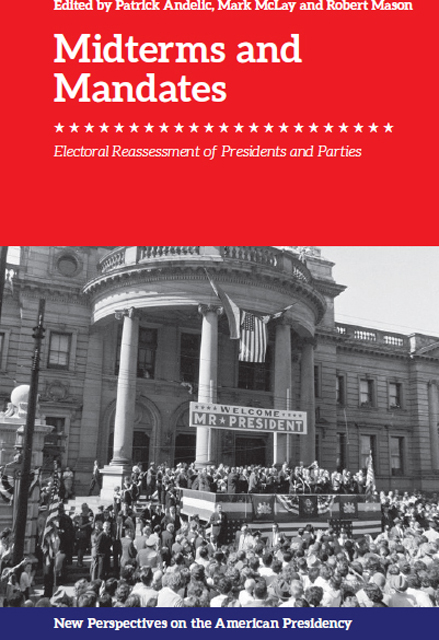Book contents
- Frontmatter
- Contents
- List of Figures and Tables
- Acknowledgements
- Notes on Contributors
- Preface: Why Midterms Matter
- Introduction: Midterms and Mandates, Presidents and Parties
- Part One Midterm Elections in Institutional Context
- Part Two Testing the New Deal Coalition
- Part Three The Republican Resurgence
- Index
8 - War on Poverty Stalled, Nixon Recalled: Republican Revival and the 1966 Midterm Elections
Published online by Cambridge University Press: 07 June 2023
- Frontmatter
- Contents
- List of Figures and Tables
- Acknowledgements
- Notes on Contributors
- Preface: Why Midterms Matter
- Introduction: Midterms and Mandates, Presidents and Parties
- Part One Midterm Elections in Institutional Context
- Part Two Testing the New Deal Coalition
- Part Three The Republican Resurgence
- Index
Summary
The 1966 midterm elections foreshadowed the next two decades of American politics. The contest sounded the starting gun for an era of Republican ascendance in which the Grand Old Party (GOP) proved adept at seizing executive control but was never quite able to break the Democratic Party’s iron grip on Congress. On a regional level, the elections also proved predictive, with the Republican Party making significant inroads into the Mountain West, the Democrats cementing their control of the East, and the Midwest emerging as the true battleground of American politics. Despite GOP hopes, Republican gains in the South were modest – a sign of the region’s stubborn loyalty to local southern Democrats that would stymie the GOP’s congressional ambitions for a couple of generations. Elsewhere, the dominant politicians of the following two decades – Richard Nixon and Ronald Reagan – played a starring role in the contest. In terms of voter attitudes, the 1966 elections signalled a growing unease with America’s war in Vietnam and a mounting disillusionment with the antipoverty elements of President Lyndon B. Johnson’s ‘Great Society’. Regarding the latter, however, the lack of Republican opposition to popular elements of the Great Society – such as Medicare, the Elementary and Secondary Education Act (ESEA), and the two landmark civil rights laws – confirmed that such legislation was now deeply woven into the fabric of American government and society.
In winning 48.7 per cent of the House popular vote – the best Republican result in a decade – the GOP ensured that the previous elections were a blip rather than a trend in American politics. In 1964, Johnson had routed conservative Republican candidate, Barry Goldwater. In the wreckage of that lopsided presidential contest – in which LBJ won the highest popular vote percentage in modern presidential history – Republicans sank to their lowest numbers in the House of Representatives since Franklin D. Roosevelt’s 1936 landslide. Given the scale of the repudiation, commentators speculated on whether the GOP remained a viable competitor for the dominant Democratic Party. Such conjecture soon proved wide of the mark. In 1966, the Republicans gained forty-seven seats in the House, three in the Senate, all while netting eight governor’s mansions. At local level, the gains went further, with Republicans netting control of a further eight legislatures and 503 state legislative seats.
- Type
- Chapter
- Information
- Midterms and MandatesElectoral Reassessment of Presidents and Parties, pp. 193 - 213Publisher: Edinburgh University PressPrint publication year: 2022



